Jim Root interview: “What’s the saying? The classics never go out of style. I think in a way, Charvel is classic now”
The Slipknot riffer on why the world needs the healing power of the moshpit, the Iowa metal institution's difficult new album, and how his new signature Charvel is a metal guitar for purists
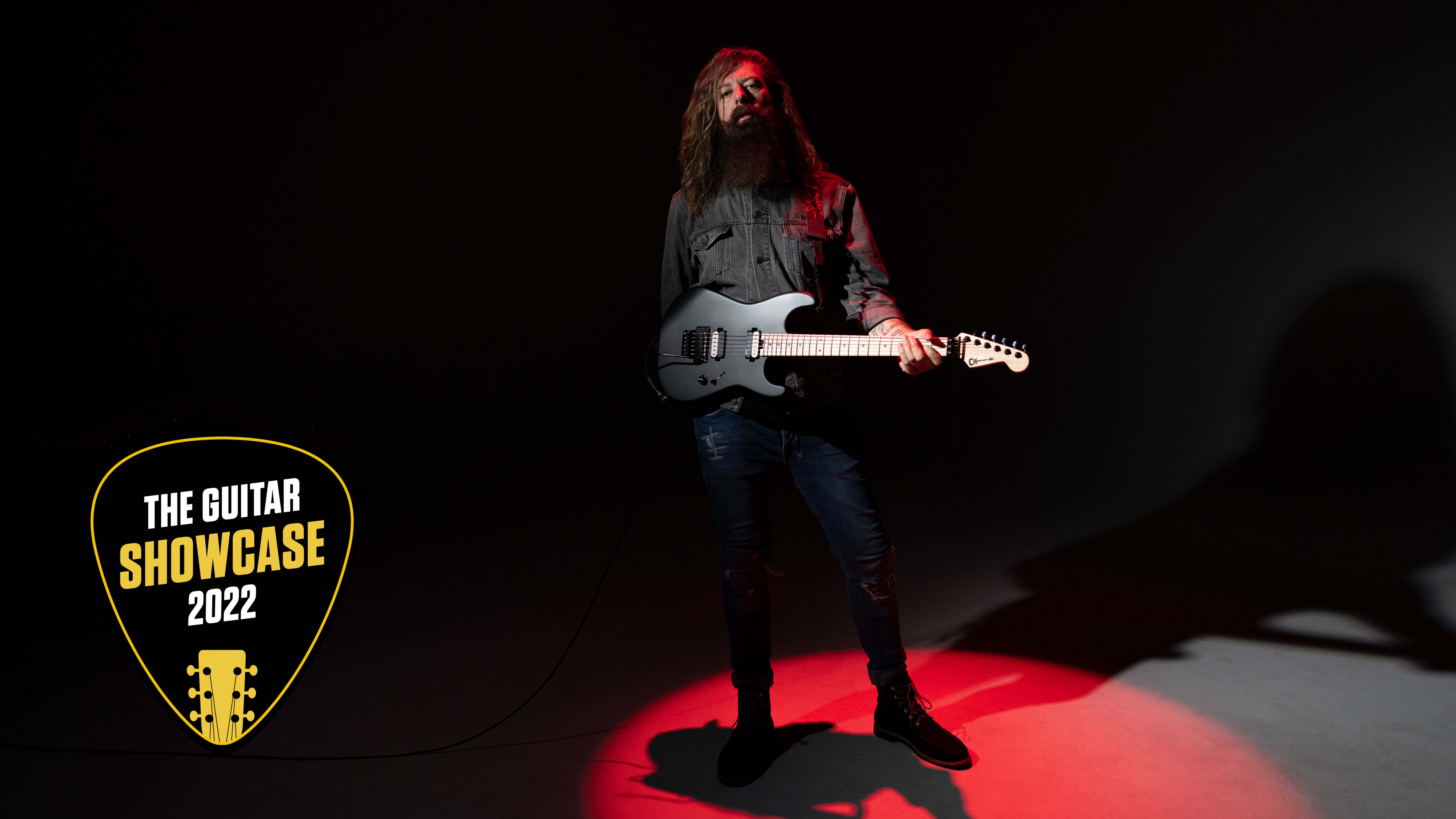
Want all the hottest music and gear news, reviews, deals, features and more, direct to your inbox? Sign up here.
You are now subscribed
Your newsletter sign-up was successful
GUITAR SHOWCASE 2022: Jim Root joins us from his garage-cum-writing space over Zoom and is taking the opportunity to chain smoke and talk shop, the first order of business being his new signature guitar collaboration with Charvel on a San Dimas Style 1.
He says he probably shouldn’t smoke, but explains why this is the only room in the house he allows himself to do so. This, he says, is where the writing happens, and smoking it just so happens is part of his process.
Except, the writing hasn’t come easy in the past couple of years. Root is always fascinating conversation, principally because he takes honesty as a first resort. So, if the songwriting hasn’t come easy of late, he’ll tell you. But, maybe, as he suggests, there’s a natural rhythm to these things – besides, if the songs were so easy to come by and arrived every day, would they have any value? Sometimes struggle is part of the process, too.
Root introduced himself to the world behind a mask, as one half of Slipknot’s guitar duo, who, alongside Mick Thomson, has created some of the most radio-unfriendly unit-shifting records of recent times.
The Iowa metal institution’s latest, The End, So Far, is out 30 September through Roadrunner, was tracked with producer Joe Barresi (Tool, QOTSA), and bears a sound that is unmistakably theirs. There will be downtuned audio violence, there will be chaos, and there will be the suggestion that just over the horizon, there’s a more experimental side to them that has to be forestalled for Slipknot to retain a sense of themselves.
Root acknowledges this conundrum. Maybe this is what has him returning to the garage to write, the chance to square the circle between the band’s pit-friendly and bankable metal – the sound that made them – and those more incongruous influences that could be brought to bear on their sound, like Radiohead, the Beatles, and all the other prog and classic rock influences that inform Root’s sensibility.
“You listen to OK Computer or The Bends, and it is not the same record as Kid A, or In Rainbows, or any of the later stuff,” he says. “Look at bands like Mars Volta. How do you evolve without turning yourself into something that is so far from what you began as?”
Want all the hottest music and gear news, reviews, deals, features and more, direct to your inbox? Sign up here.
That’s the question. But first, there’s a new Charvel guitar to talk about. That is essentially a go-faster Fender Stratocaster – the most-classic of electric guitar silhouettes – tells us everything about where Root is coming from.
Congratulations on the new guitar. It says Charvel on the headstock, but it begs the question, how many degrees of difference are there between this and a Fender Strat? We’re not that far away with this.
“It’s a weird thing, because a Charvel is essentially a Superstrat and me, being a purist, I don’t think that you can really think you can reinvent the wheel, so to me the most iconic rock guitars, metal guitars and guitars for pop – and all that stuff – have been, like, Fenders and Gibsons.
We can’t just go put a dubstep record out; we’re f**king Slipknot, there’s a wheelhouse, there's something to work from. But how do we take that and let that evolve?
“When I was growing up, all the guitar players that I was into were playing Jacksons and Charvels, and things like that – the Superstrat-y kind of guitars – and now it just so happens that Fender owns Charvel, so… The Fender thing was me being a traditionalist. I like iconic things, y’know. Sunglasses? Ray-Bans, Persol, things like that. Jeans? Levi’s. Things like that. They stand the test of time.
“What’s the saying? The classics never go out of style. I think in a way, Charvel is classic now. When I was playing them in the early ‘90s, late ‘80s – that was a while ago looking back at it now! [Laughs] Shit! – those could be antiques now. To me, I was chasing a Charvel that moulds the two worlds together with Fender, that classic Charvel/Jackson neck profile with that classic design of a Fender Strat, or a Telecaster, these very traditional things.
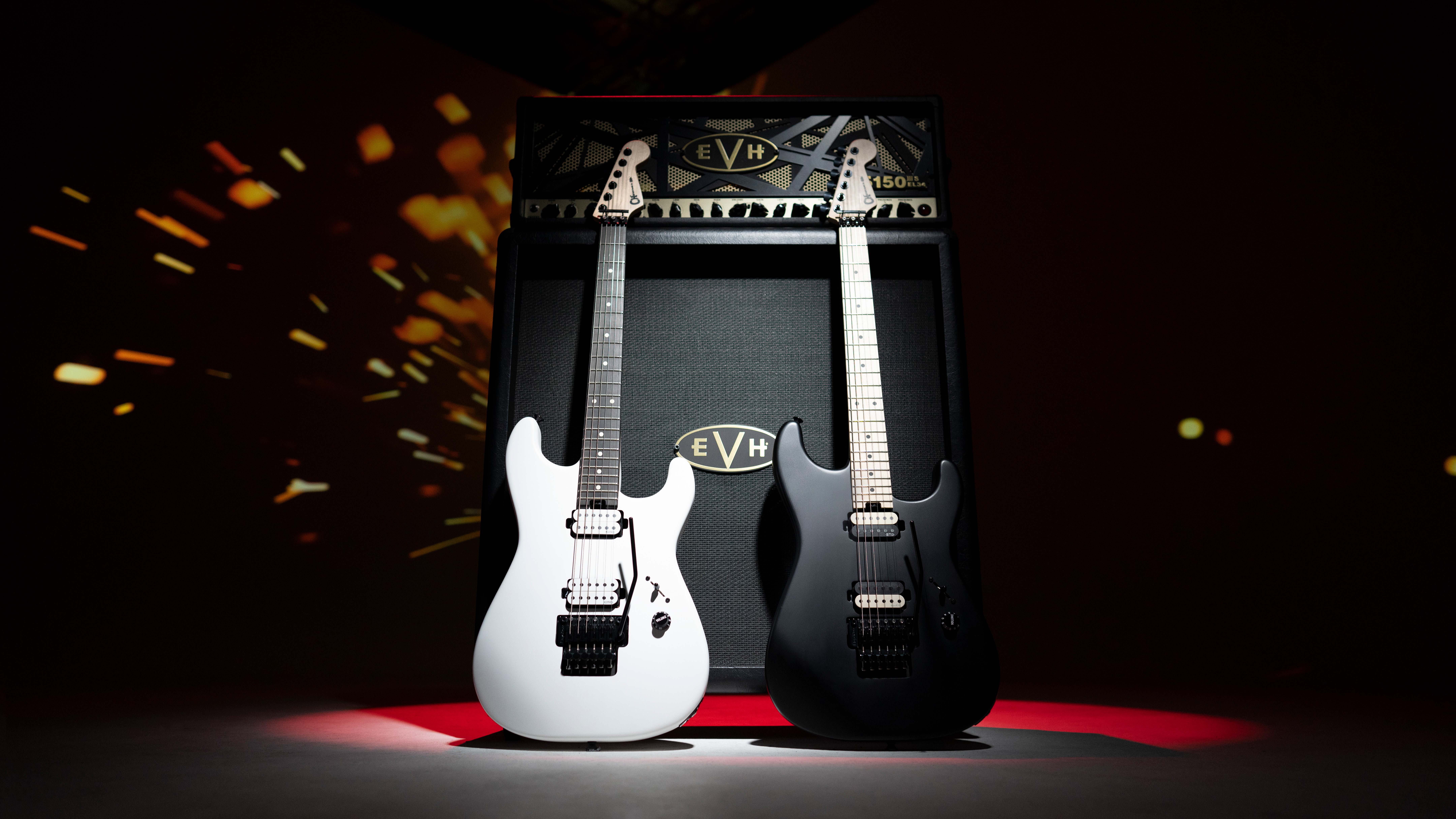
“For the way I play, it is hard to set a low action and get a really beefy tone from single-coils and a seven-and-a-quarter-inch radius fretboard. You need to get a compound radius or a flatter radius [fingerboard] and make the wood out of a denser wood like mahogany, a heavier wood, and make the pickups closer to the pickups that I use in a guitar. It is combining all the things from all the worlds put in one planet.
My heart is with Fender, and it always has been and always will be
“Because I like this about that guitar and that about this guitar… Well, what if I could get them all in one guitar? People used to give me shit; I needed a multi-scale, multi-scale Fenderepigibaphone thing! [Laughs] Well, it can be done, and Fender did it and did a good job on it, and when Charvel offered me a signature model I was like, ‘Well, I don’t want to fuck up things with Fender.
“I don’t want to leave Fender and not be a Fender artist because they have been so good to me over the years, and I am extremely loyal to them. Sometimes I will play a [Flying] V or a Jackson onstage but my heart is with that company, and it always has been and always will be.”
It fits your musical philosophy, too. Because you love the classics. You take your cues from the Beatles et al and yet reinterpret it into something a little more ugly, extreme. The same songwriting principles are there.
“I am still learning how to write songs. I don’t know that I have perfected a method because every time I do it it is different. You tend to start the same way, and you have your methods and the things that you do, but, for me, I feel like that is one of those things. During the pandemic, I got really depressed, and I was really bummed out on music, and I wasn’t being creative at all, and I wasn’t really writing.
During the pandemic, I got really depressed, and I was really bummed out on music, and I wasn’t being creative at all, and I wasn’t really writing
“I was throwing ideas on tape, on Pro-Tools, but I wasn’t putting arrangements together as I had done previously for the The Gray Chapter or for We Are Not Your Kind. It was a little bit disjointed, and now I am out here in my garage, where I wrote a lot of those songs, and I haven’t been out here working in probably two years or so. I just bought a new desk, set up, and really trying to put myself back in the mode of writing, whether it is for Slipknot or whether it is for something I do on my own in the future, I wanna write.
“I got offered to do an intro for a show called Graveyard Carz, and they wanted me to write an intro bit for them, so I am going to start with that. And I feel like, once I do that, that will get me to into that creative mode where I can hopefully just fall in love with the writing process again.”
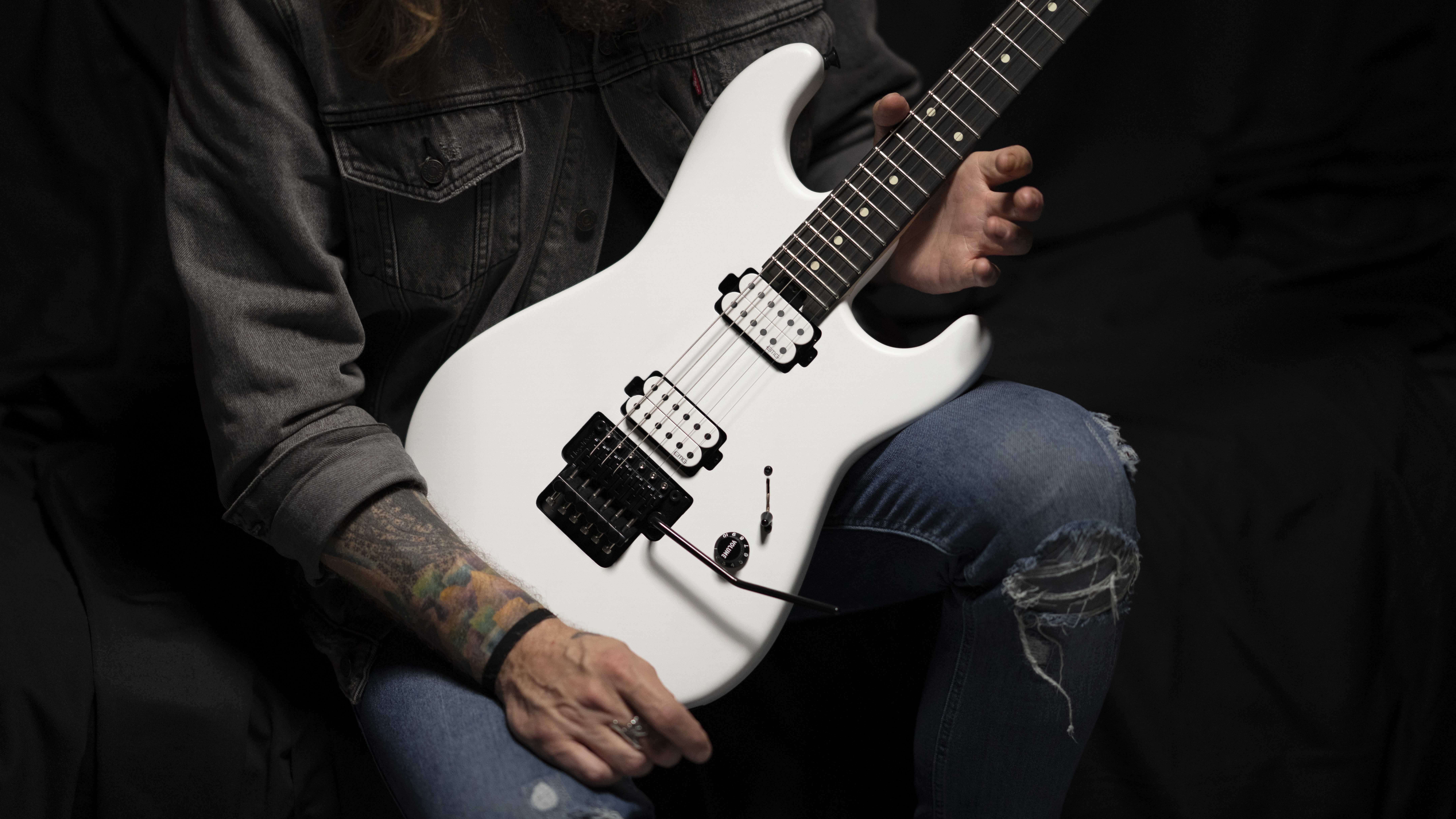
Inspiration comes and goes.
“I have always been like that, with guitar playing, with songwriting, with all that stuff. I go through phases with it. I either can’t be bothered or I become obsessed by it, and it has been a while since I have been obsessed by it. I need to get back to that.”
You have to follow the body’s rhythms, and how the brain is going. You can’t swim against the tide and make it happen.
“No, you never want to force anything – because that can be contrived, and I think people can pick up on that, even if they are not talking about it in the press, or whatever. If they pick up a bit of music that they put out, they kinda catch on to it, like, ‘This seems a little contrived, a little thrown together.’ And I can’t operate like that. I am way too hard on myself too much and I just… [Laughs] It really has to be honest. It has to be honest.”
You never want to force anything – because that can be contrived, and I think people can pick up on that
We are talking because you have a new signature guitar but it strikes us that you need something more than a new guitar to get motivated to write.
“It’s everything. It’s the room you’re in. I tried writing; I set up all this stuff inside my house and I tried writing during the pandemic and I just could not do it. My garage is kind of in a shambles right now. I am in the process of doing some construction. I had an air conditioner ruin some of the drywall out here and they are getting ready to fix it but…
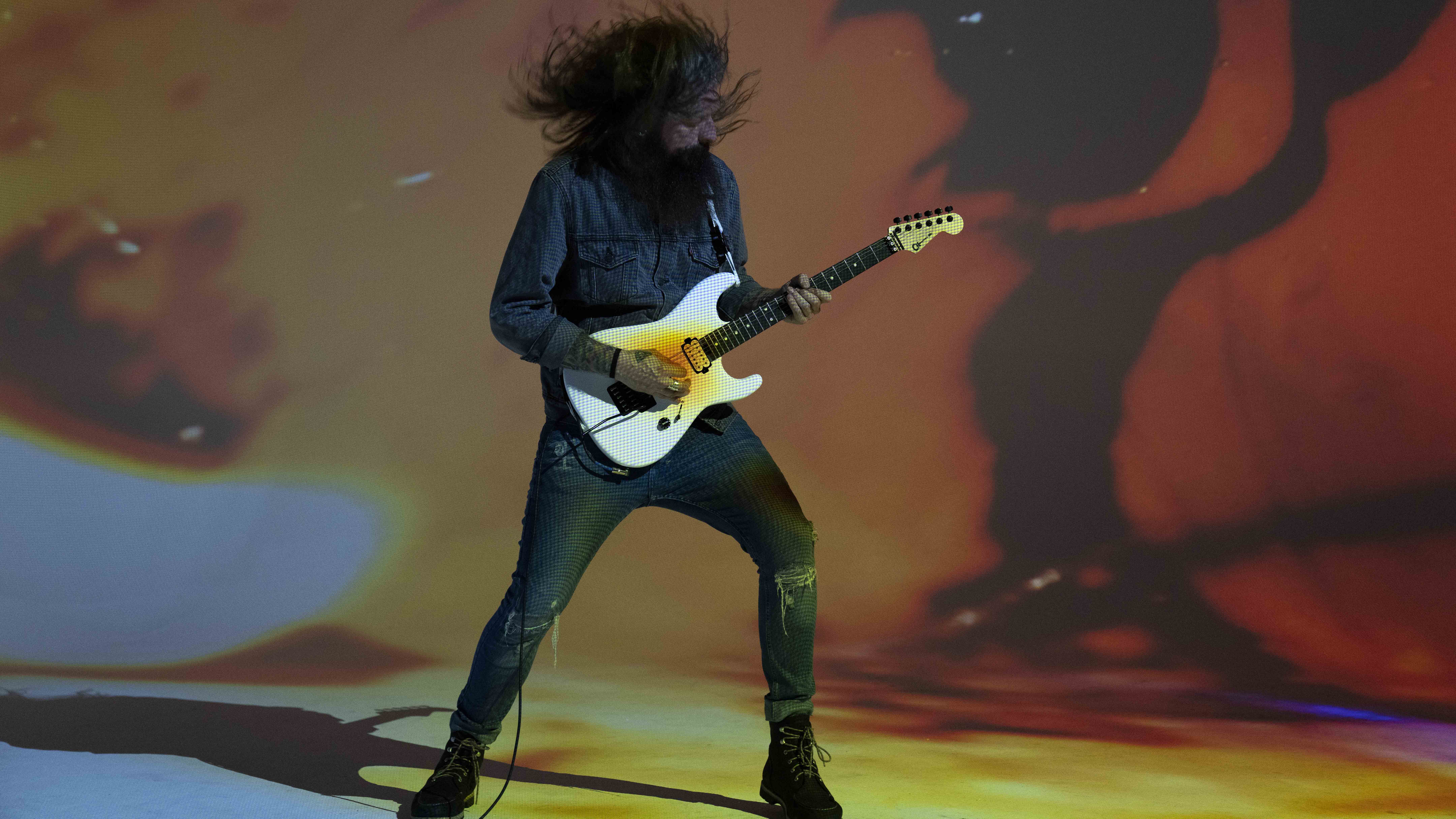
“This is where I write. This is my comfort zone. I don’t allow myself to smoke in the house and I probably shouldn’t be smoking at all anyways, but I allow myself to smoke out here and it is part of my process.
It is not about the guitar that is in your hand. It is about the mindset, the room I am in, and, I dunno, whether Mars is in retrograde and all that shit!
“If I have, say, three minutes of an idea together, I’ll put it on a loop, and I’ll step away from the computer and have a cigarette, and not think about what I am listening to but let it subconsciously hit me. And then I’ll be like, ‘Oh, that’s too long. That part doesn’t make any sense in there…’ And if I just step away from it, have my cigarette, in my mind I am putting together what I should do with the arrangement.
“Then I’ll sit down at the computer and, even if I am not smoking, I’ll light one up and it’ll be sitting there in the ashtray, and I’m working, and I just don’t think about it. I couldn’t do that in my house. And I didn’t even have a desk. I had a weird drum throne and had my computer set up next to my turntable and my stereo and it just seemed very disjointed and I couldn’t get into a comfort zone, so you are 100 per cent right; it is not about the guitar that is in your hand. It is about the mindset, the room I am in, and, I dunno, whether Mars is in retrograde and all that shit! [Laughs]”
Ha! Yeah, but it all matters. You’ve been doing this for a while, what do you need from your producer? Is there much left to be written by the time you get to the studio? What can someone like Joe Barresi do for you?
“Hmm, it depends on the process. Joe Barresi is an amazing producer. He has got an amazing track record, and I feel that we weren’t prepared for Joe Barresi, and I feel like we were not able to use Joe Barresi to his fullest extent, y’know what I mean? We did not do pre-production. We essentially built this record in the studio, and a lot of that was due to Covid, and us being separated, and the circumstances led us to do the record the way it was done.
“With my mindset being the way it was, I didn’t have a ton of creative input. I felt kinda rushed trying to come up with ideas for this or that arrangement. We weren’t rehearsed as a band. We did not come in knowing the songs top to bottom, and that affected the record. That put us behind schedule. It had us, not really arguing and fighting with each other, but trying to figure it out, like, ‘What is the best way to approach this knowing that we are doing what we are doing?’
Movie directors will say constantly that they never finish a movie, they just abandon them! I feel like, more than anything with this record, we had to abandon it and move on
“You can make a plan, and you can plan as much as you want, but the big clock above your head and the budget from the label, and all this stuff, the studio we were at and the scheduling of that, there are so many factors that were against us making this record that I am surprised we were able to finish it.
“And then it is taking us so long to get it out compared to how long it took us to track it! It’s like, well, if it has taken this long to get it out then we could have taken our fucking time with pre-production, and, in my mind, put out a better product. And that’s not to say that we’re disappointed with what we are putting out; it’s where we are at. It’s what we were able to do, given the circumstances, and the things that we had to work with.
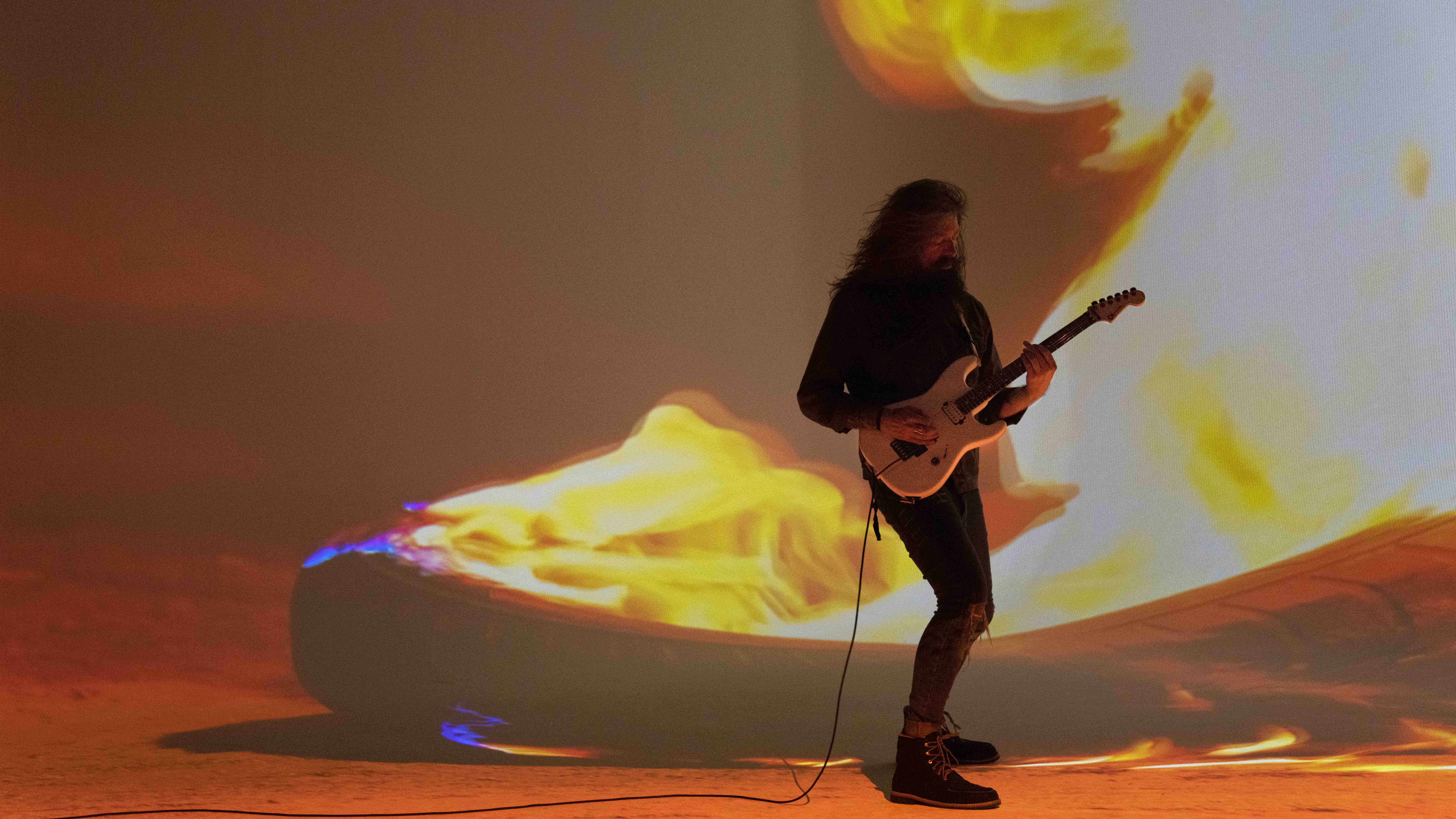
“But it’s like the movies. Directors will say constantly that they never finish a movie, they just abandon them! I feel like, more than anything with this record, we had to abandon it and move on from it. And Clown was like, ‘It’s not a record! It’s not a Slipknot record! We are still touring on We Are Not Your Kind, on that tour, and by the way here are some songs...’ Well, you can say that, but we are putting a fucking record out and to the fans this is a fucking Slipknot record. No matter what you say, that’s what it is.”
How do you evolve without turning yourself into something that is so far from what you began as?
But on the other side of the speaker, we the audience have a totally different perspective. We don’t see that behind the curtain, so it doesn’t really matter. And that could be the same for you once you actually perform the material; those new experiences will change your perspective.
“Right. And we are still trying to evolve as a band. I mean, we have to evolve. There is no way around it. We are not the same band that put out the Iowa record. We are not the same band that put out The Subliminal Verses. We are just not those people anymore.
“That is why I say that I am still trying to learn how to write, ‘cos you want to evolve. If you look at certain bands, like Radiohead or even the Beatles, look at the way they evolved over time.
“Like, I do not want to get away from this, from the Iowa record, the self-titled record; those are a huge part of our career and we still play those songs to this day, and it is a huge part of what we are. So, how do you maintain that and then also get to express yourself and evolve musically?
“It is a weird teeter. It’s a weird balance. I could get on this keyboard here and use a bass synthesizer and not even touch a guitar to write some arrangements and then, all of a sudden, you’ve got some kind of weird The Voidz stuff coming out or something, and a Slipknot fan might hear that and think, ‘What the fuck is this trash?’
“And I could be listening to it going, ‘I’ve never done anything like this before. I am so proud of this!’ We can’t just go put a dubstep record out; we’re fucking Slipknot, there’s a wheelhouse. There’s something to work from. But how do we take that and let that evolve? And what does that sound like? Who knows?”
These are things that maybe only you all can answer together in the studio, by accident or not, or by way of a late night creative epiphany when it suddenly makes sense and that, yes, Slipknot can write metal’s Sgt Pepper’s or Pet Sounds.
“Yeah, and I would love to do that because I don’t think there are any limits to what Slipknot can do; Slipknot has many different faces. There are the songs that we play live, the experimental songs like Danger – Keep Away, stuff like that.
“There are the really dark moody songs like Gently, Prosthetics, Killpop, so we get to play, we get to evolve, we get to really experiment and get into that Brian Wilson/Pet Sounds world – we just don’t focus on that being an entire record full of those sort of things.”
I am still learning how to write songs. I don’t know that I have perfected a method because every time I do it it is different
It’s being able to have that freedom within your sensibility. Artistic freedom can be hard to come by, no matter how you chase it. Did you play around much with gear on this to find a sound?
“Joe is a purist too, so we kind of went backwards. The most experimenting I did was I used different amps that I wouldn’t normally use for different guitar tracks. We used a lot of the same pedals. I tried to pull my gain back.
“Normally, I push the preamp of my heads so much that I don’t need any distortion pedals or overdrives, or anything like that. That creates muddiness that is not ideal, plus with our tunings being so low, it’s hard to get in that zone and feel that tone. So we did a lot of experiments, like using old Peavey VTM 120 heads, and Rectifiers! I haven’t used a Rectifier in… I don’t think I have ever used a Rectifier! [Laughs]
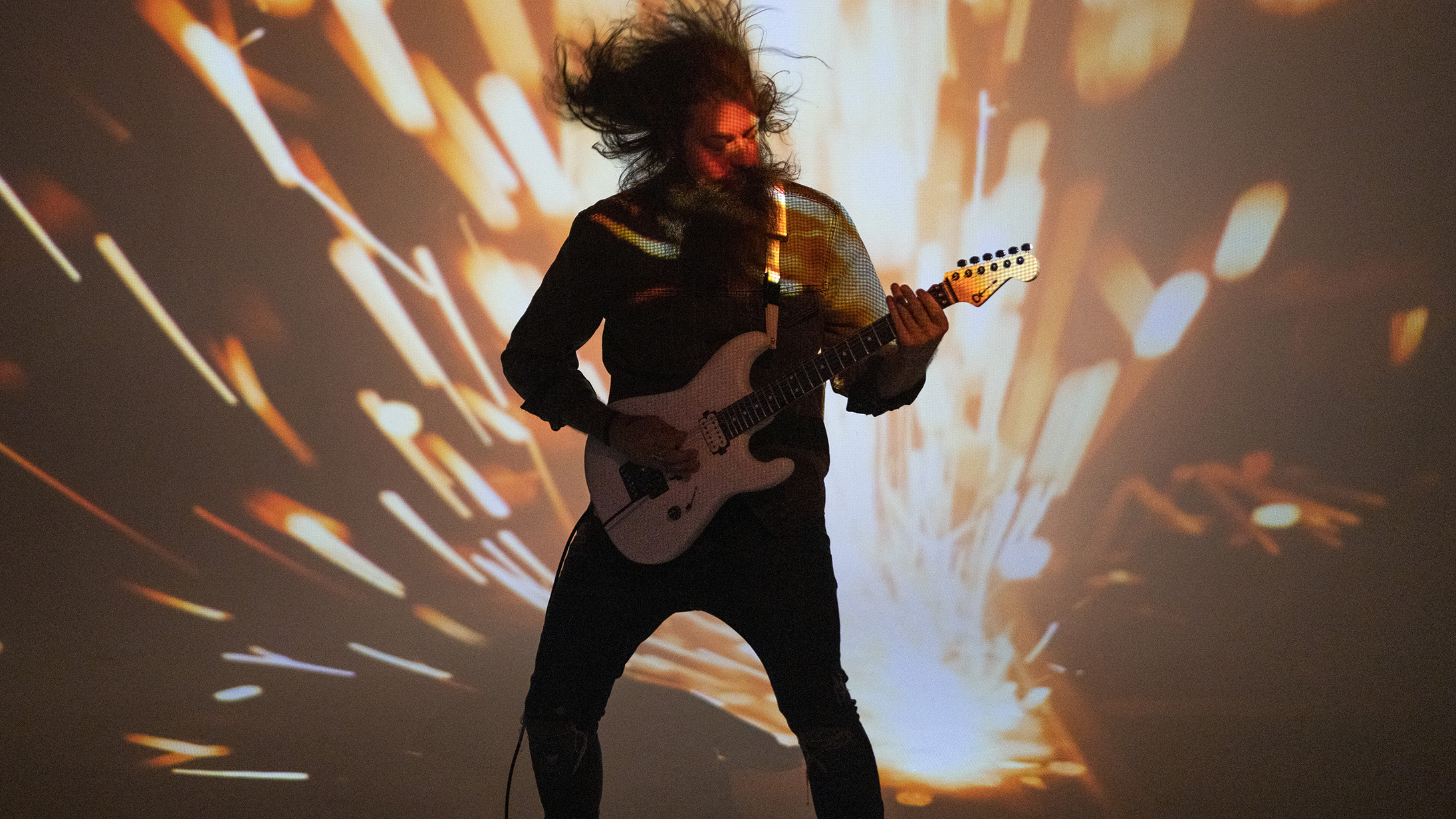
“I kind of got away from the Marshall/Orange EL34 British-type guitar tones that I have used before, that are really oversaturated. For guitar tones, we went back to the past and listened to old Dio, with Vivian Campbell on guitar, and Ratt, and all these old guitar tones where these are really great tones and there is really not a lot of oversaturated distortion on them.
“It’s the opposite of all this Quad Cortex Neural DSP that you are hearing from a lot of the modern bands now, a lot of DSP things that they are using, really heavy and really defined. It is that purist thing again. Sometimes I forget my age; the world is changing but at the same time I have used Axe-Fx before.
“I have used all these digital preamps, and I use them for demoing. They are great tools for demoing. But when I am onstage I want to hear the sag of the tubes. I want to feel the response of an amplifier, and speakers pushing. There is never going to be a substitute for that. I don’t care how good this digital stuff gets.”
Talking about those old-school metal guitar tones from Vivian Campbell and players like that. There’s something about the clarity in the midrange. Sometimes it feels like if you can work out the mids, everything is hunky dory. But it’s not so easy.
“Yeah, there’s a lot going on there. But you’re also comparing apples to oranges, because Vivian Campbell and his band, it is literally a drummer and a bass player; Mick and I have to work out where our guitar tones fit so we don’t mask each other’s guitar tone, and then there’s bass guitar, and there’s two auxiliary drummers, there’s all this shit going on! [Laughs]
“And it needs to find a place to fit in a mix, and guitar are meant to fit in a certain midrange frequency. Now you start dropping the tuning and you start adding bass to your guitar amps and then you start sitting not just in bass drum territory but bass guitar territory, so it’s tricky.
There is just something about an A=440 tuned guitar, with the amplifier, in that range, and the way and sits and mixes with the bass guitar, and everything sits in place
“And that’s why I have never been a fan of the seven or eight-string guitars – even the drop tuning puts you in those frequencies where EQ’ing [is difficult]. There is just something about an A=440 tuned guitar, with the amplifier, in that range, and the way and sits and mixes with the bass guitar, and everything sits in place.
“Maybe that’s why I like all the records that I like, old Jethro Tull or Yes records, or even newer Queens Of The Stone Age stuff where Josh [Homme] is tuned to A=440. Everything just sits in a really good place, and even if you have a lot of instruments going on they all take up their frequency range in a place that is pleasing to the ear. They are not masking each other, turning things into mud.”
We should finish on a Slipknot note. This album, with The Chapeltown Rag, and it’s got this sort of multiple perspectives, Rashomon narrative. Is there any theme tying this material together? We live in a weird cultural moment, which must be doubly weird seeing the world through a Slipknot lens.
“Everything is so bizarre and so bananas I don’t even know what’s going on with the world right now. I couldn’t even tell you what is going on with the culture, because, being locked up for two years, and then you come out and everything’s upside down, it’s really… I don’t get it.
“I thought rock ’n’ roll, and punk and metal, and all that stuff was meant to be anti-establishment and against the man, and now it seems more and more like, ‘Obey!’ and do as you’re told sorta shit, and that seems backwards to me. I don’t know if I am the only one that feels that way. I haven’t really talked to anyone in the band about it, ‘cos we’re just trying to get through these tours, through the protocol and the Covid shit, and all that.
“We haven’t really checked in with one another to see how we’re doing, how we’re feeling about the state of the world and all that, but when I hear a band that’s saying ‘Fuck you, I won’t do what you tell me’ telling me to do what the government tells me to do, that seems backwards to me.”
It is difficult to work out which end is up. It sounds like you need an official band meeting to work this thing through.
“Yeah! I think people are just so fucking sick and tired of sociopolitical content because you are just hammered with it, no matter if it’s a news cycle, a feed on social media, or any of that shit. What I get, when we go out and play shows, is people just don’t fucking care about that anymore. People have their issues, and people have their things they are concerned about. Yes, of course, and they always will. But for the most part people just wanna shut off, come out and forget about the world for a while, and they wanna have fun.”
For sure. Your troubles, the misery, it’ll still be there when you get out…
“It will still be there! Let’s just tune out of it for a little while and try and be human for a little bit. Y’know what I mean? [Laughs] We are all in this together so let’s just grab each other by the hand – get in the fucking moshpit, and scream your head off. Have some therapy.”
- The End, So Far is out 30 September via Roadrunner.
Jonathan Horsley has been writing about guitars and guitar culture since 2005, playing them since 1990, and regularly contributes to MusicRadar, Total Guitar and Guitar World. He uses Jazz III nylon picks, 10s during the week, 9s at the weekend, and shamefully still struggles with rhythm figure one of Van Halen’s Panama.
